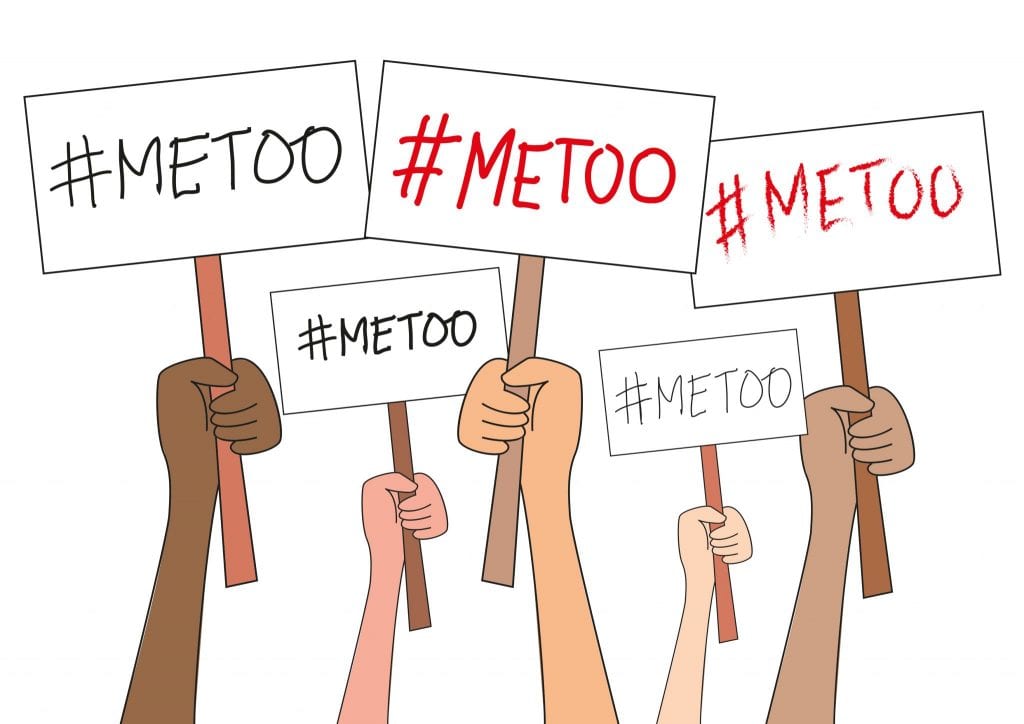In recent years, advocates with lived experience of gender-based violence globally have helped propel this significant social, legal and political harm to the top of the public agenda like never before. Most conspicuously, the #metoo movement and public statements of sexual abuse and harassment from high-profile women including Rose McGowan, Uma Thurman and Monica Lewinsky, encouraged women around the world including low-wage US farm workers to use the hashtag #metoo and share their experiences.
The #metoo movement is only a little over a year old but already advocates have helped bring about significant change. From the Time’s Up Legal Defense Fund in the US, which provides subsidised legal support to victims of sexual harassment, assault or abuse in the workplace; to allegations of sexual harassment and assault against numerous politicians in Britain, known as the ‘Westminster scandals’; and the national inquiry into workplace sexual harassment in Australia.
In the Australian context, the important role of victim survivors is perhaps best demonstrated through Rosie Batty, whose son Luke was murdered by his father in 2014. In speaking out about her experiences, Rosie was one of the key people who inspired the Victorian Government to launch a Royal Commission into Family Violence and the remarkable investment of over a billion dollars.
But while it appears that victim survivor advocates are helping generate significant change, there has been very little research exploring how and why these voices are being heard now, and importantly, which advocate voices are being heard and which remain silent/silenced.
What is it about some victim survivor advocates, their stories and the context surrounding them that makes them so influential? Do they challenge and diffuse social norms, and thereby pave the way for formal rule changes? Or are they utilised by governments and others to generate support for rules? This is the focus of my doctoral research and so far the literature suggests that the ‘ideal victim’–who makes headlines and drives change–does not necessarily reflect our most common victims.
As Jill Meagher’s husband Tom wrote after she was raped and murdered in Melbourne in 2012, for the silent majority of victims their “tormentors are not monsters lurking on busy streets, but their friends, acquaintances, husbands, lovers, brothers and fathers.”
Australian Bureau of Statistics data shows that women are more likely than men to experience violence by a partner (17% or 1.6 million women, compared to 6.1% or 547,600 of men). Women are most likely to experience physical assault in their home (for their most recent incident, 65% or 689,000 women), and women are more likely than men to be killed by an intimate partner (79% or 99 of a total of 126 people killed by an intimate partner were women).
Yet it is the minority of cases, such as Jill Meagher and Eurydice Dixon, which seize our attention. Walklate et al have written that the extent to which victim narratives should form the basis of policy needs to be challenged, especially when it is only some victim’s stories that are heard.
Rosie Batty herself acknowledged in her Royal Commission witness statement that the reason she was able to speak out about her story is because she is white, middle-class, well-educated and articulate. In response to this, Rosie has used her position of relative privilege to support other victim survivor advocates, including Tarang Chawla and Nicole Lee who recently ran for parliament in Victoria.
The literature also suggests that it is not always a good thing to live with the status of being a victim. Norwegian sociologist and criminologist Nils Christie writes, “The ideal victim is in a subordinated, weak position. If females opted for a status as ideal victims, they would have to accept a lasting subordination.” In my work with victim survivor advocates at Our Watch, the national foundation to prevent violence against women, I found that some advocates felt that they were very much treated as subordinates or as one of them said to me “like dirt”.
Fortunately my initial research has found that not only does it seem that it is possible for victim survivor advocates to help others be heard, it may also be possible for victim survivor advocates to transcend their victim status.
Looking at the case of Malala Yousafzai, the girl from Pakistan who was shot by the Taliban for campaigning for education for girls, it is clear that Malala has used her influence to speak for other victim survivors. Meeting with the Nigerian President in 2017 and speaking up for children displaced by Boko Haram, Malala called for the declaration of a state of emergency for education saying “I am here now because of the Nigerian girls. Fighting for them and speaking up for them”.
Malala has also refused to be subordinate, agreeing to meet with Barak Obama in 2013 on the condition that she could raise concerns about the effect of U.S. drone strikes. So while at the time she was shot she may have possessed most of the attributes of the Christie’s ideal victim, over the years that have passed since she was attacked, Malala has moved with her family to England, received the Nobel Peace Prize and is now studying at Oxford. She no longer possesses the attributes of the ideal victim.
What does this mean for her ideal victim status? Well perhaps Malala is becoming more and more the non-ideal victim. Perhaps incongruously as she becomes less subordinate, she also becomes less influential as a victim survivor advocate? Perhaps through her dedication to education Malala will manage to escape the “lasting subordination” identified by Christie? And this may be applicable to other victim survivors.
It is my hope that as a tidal wave of women say #metoo this will no longer be an issue of individual victims (ideal or otherwise) and our judgements about their innocence or guilt, and become instead an issue of culture, social norms and gender stereotypes. When that happens we will be well on our way to real change.


